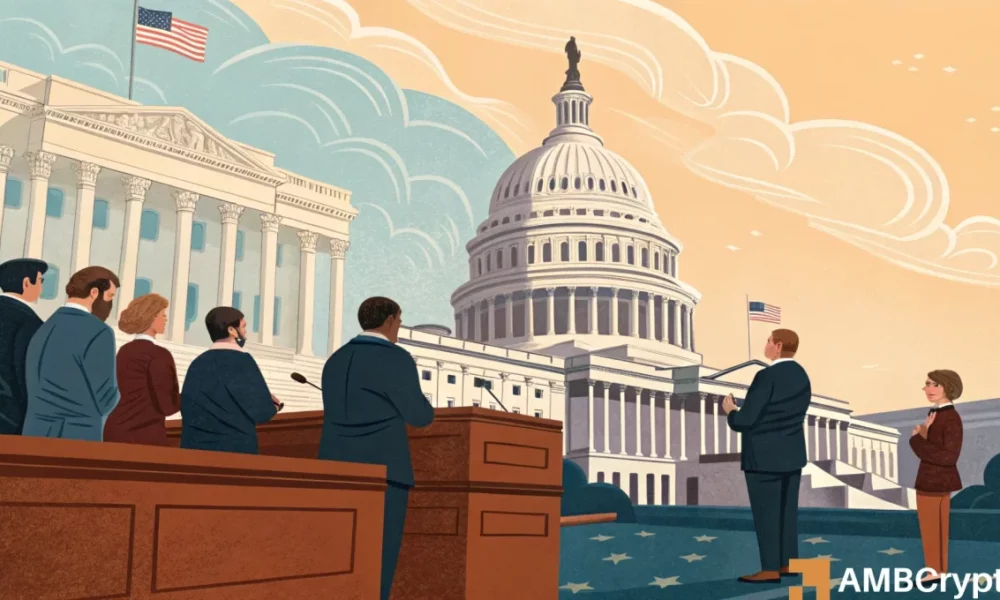United States legislators are resisting the contentious “DeFi broker rule,” which dictates that decentralized exchanges and digital asset brokers must report transaction specifics to the IRS. On February 26, the House Ways and Means Committee voted 26-16 in favor of advancing a resolution aimed at revoking the rule before it goes into effect in 2027.
Initially sanctioned by the IRS on December 5, the guideline seeks to broaden reporting obligations, mandating brokers to reveal details of cryptocurrency sales proceeds and taxpayer information.
Nevertheless, opponents contend that implementing such regulations on decentralized platforms is infeasible and signifies excessive governmental interference.
What Are the Lawmakers’ Objections?
Chair of the House Ways and Means Committee, Jason Smith (R-MO), criticized the IRS tax regulation, claiming that it seeks to “needlessly regulate the providers of digital wallets.” He asserted that the rule would impose an unfair burden on U.S.-based companies, while giving a competitive edge to foreign entities exempt from similar reporting requirements.
In alignment with these reservations, Miller Whitehouse-Levine, CEO of the DeFi Education Fund, denounced the regulation as an “illegal and unconstitutional overextension.” He stressed the necessity of repealing it to “safeguard Americans’ freedom to choose how they engage in transactions.”
He expressed:
“We call on all members — and all those who wish to position the United States as a center for financial innovation — to promptly act in upholding Congress’s original intent by endorsing the proposal to overturn this misguided regulation.”
How Does This Development Benefit the U.S?
Undoubtedly, the move to annul the DeFi broker rule mirrors a broader change in U.S crypto regulations, propelled by the Republican Party’s dominance in both the Senate and the House.
With an influx of pro-crypto legislators in Congress, industry experts speculate that the U.S could be heading towards becoming one of the most crypto-friendly administrations to date.
This shift is already observable, with the SEC retracting various enforcement measures against crypto companies throughout February — a sign of a more lenient regulatory stance.
Trump’s Pro-Crypto Actions
Moreover, at the World Economic Forum in Davos, Trump accused major banks like JPMorgan Chase and Bank of America of partaking in “politically-motivated de-banking.” He alleged that they were marginalizing conservatives under regulatory pressure.
While the banks refuted any wrongdoing, and Trump failed to furnish concrete proof, his accusations instigated a Republican-led inquiry into potential financial biases.
Consequently, as the Trump administration redefines its priorities, the impact on crypto regulations remains uncertain, leaving the sector anticipating plausible regulatory respite.

